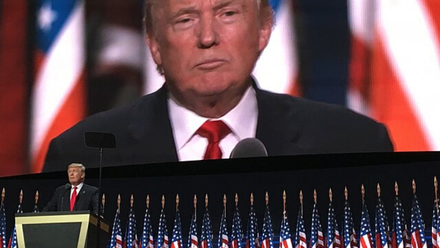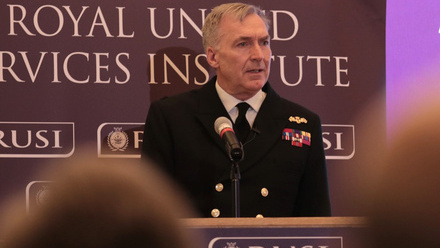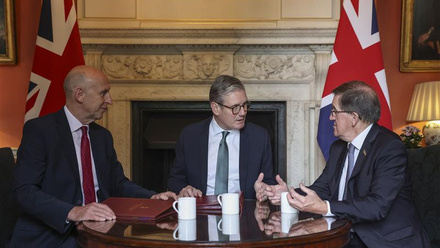Overview
Admiral Key will share his insights on the fallout of Russia’s invasion of Ukraine and its implications for the Royal Navy. He will focus on the importance of maritime power as means to promote peace, security, and prosperity.
Held since 2001, the annual Gallipoli Memorial Lecture aims to illustrate how the contribution and sacrifices of Australian and New Zealand forces more than a century ago can inspire countries today to use their military instruments to best effectiveness.
Event location
This is a hybrid event exclusively for members, taking place at RUSI, 61 Whitehall, London, SW1A 2ET, and online. Refreshments will be available from 12:30 BST.
Members can watch the event here. Log in to viewRead the transcript
RUSI Gallipoli Lecture 2023: The Utility of Maritime Power in Global Security
Introduction
Good afternoon. Thank you to RUSI and Professor Malcolm for inviting me today.
It’s good to be here, though I hope you’ll forgive me I hope if I leave the expert analysis of the Gallipoli Campaign and the land elements to those of you in the audience who are much better qualified than I.
But 108 years on, there could be little better time to be considering issues of maritime security. In the very same part of the world that the Gallipoli campaign unfolded, conflict and sea-denial is once again having a much wider impact than in just one part of the ocean.
Russia’s war against Ukraine is not just a land campaign, starkly highlighted by the effective closing of the Black Sea to maritime trade and the resultant impact on global grain markets – it is an illegal war and one that impacts us all.
Importance of the sea
At its heart, the Dardanelles actions and the Gallipoli campaign that followed them were about access. The thinking went that by constraining Constantinople’s access to the sea, the Ottoman Empire would be forced out of the war.
Unrestricted supply of goods and materiel through the eastern Mediterranean and Suez Canal would be assured for the Entente Powers and this would bring to bear from the sea strategic effect in the land campaign, which was by then at a stalemate.
Access to the sea remains as strategically important in 2023 as it was in 1915, no more so than to our island nation.
While the world is more connected than ever by international air travel and instant communication, it remains the oceans that underpin almost every economy around the world.
The well trotted out facts of the United Kingdom, 90% of our imports by volume arrive by sea, many of them through fragile maritime choke points.
97% of our global data and $10 trillion worth of value is routed through undersea cables that surround our island nation.
The maritime sector provides some 160,000 jobs and supports hundreds of thousands more, contributing £19 billion to the economy.
Our maritime expertise in insurance, the basing of the International Maritime Organisation right here in London and UNCLOS gives us unrivalled influence for a nation of our size.
And our energy security is underpinned by oil and gas infrastructure in the North Sea, offshore wind generation and the import of products like Liquid Natural Gas from overseas. Whilst this mix will and must change as we transition to net zero, much of it will continue to come from or by the sea.
Put simply, free and open use of the seas is even more important now than it was at Gallipoli.
In 1915, the Dardanelles was the strategic point through which the lifeblood of the Ottoman Empire flowed. Today, our interests are more globally diverse. The Straits of Malacca, Hormuz and Gibraltar, the Bab al Mendeb, the Suez Canal and soon, thawing passages through the Arctic Ocean: these are our Dardanelles.
The signs are already evident: the global impact of the blocking of the Suez Canal, the effective closing of the Black Sea to trade.
Whilst the defence of the Euro-Atlantic is correctly our priority, Russia’s campaign demonstrates that local actions in the maritime domain have global impacts across domains.
At sea, strong leadership and deterrence, from the local to the global stage are essential for the nation’s prosperity. This is, and always will be, a fundamental and unique role of navies and it is expected and demanded of the Royal Navy in support of our nation, our maritime trading nation.
It is why we operate across the world every day of the year, delivering soft power through engagement and reassurance, to hard power with the decisive strike capability the Royal Navy fields in our carrier and littoral strike groups and our operation of the submarines that carry the nation’s nuclear deterrent.
Shift in the global order
Yet a paradigm shift in global order is underway. Free and open use of the seas is under threat. Now, more than ever, localised events are having global ramifications.
The stability and security that we have enjoyed for decades now feels further away than ever.
Together, the Rules Based International System and United Nations Convention on Law of the Sea have underscored relative peace and avoided large scale conflict for decades. But authoritarian regimes and hostile actors are testing that system, chipping away at it.
Allies
I and my fellow naval chiefs around the world witness this every day. It is on our doorstep in Europe, it’s in the Middle East, the South China Sea, the Pacific Ocean.
No corner of the world’s oceans, the great global commons that connects us all is untouched by it and inaction is not an option if we want to defend the freedoms that are accustomed to and which so many gave their lives for in the early part of the 20th Century.
In 1915 at Gallipoli, it was very clear that the Entente Powers were not used to operating alongside each other. They may have been partners, but they were not integrated. Tactics, communications and joint operations were all at best rudimentary; it was simply not well practised.
Today that could not be further from the truth. Alliances matter, and we invest in them. We share with our allies a commitment to free and open use of the oceans and through a number of organisations, alliances and agreements we ensure that we carry that burden with our friends, partners and allies.
The United States often says that ‘you cannot surge trust’ so every day we train, we exercise and we operate alongside allies and partners with interoperability and interchangeability as our watchwords.
It allows those with particular expertise to pass this on to others, sharing best practice and allowing us to learn and demonstrate together that we are stronger when we are united.
Black Sea / Mediterranean
The profligate the use of mines in the Black Sea in the last 18 months has stopped free movement in large areas, contributing manifestly to the impact of Russia’s illegal war in Ukraine.
Today I am delighted to say that working alongside Admiral Niezhpapa, my Ukrainian opposite number we are helping to support the Ukrainian Navy in developing their mine countermeasures capabilities.
Because lack of free access to the Black Sea both today and when this war ends, will continue to threaten the free movement of civilian shipping going about its lawful business.
That is having far reaching ramifications in the costs of energy, goods and the distribution of foods.
The Black Sea Grain Initiative brought hope. Brokered so successfully by Türkiye, such an important partner in the region, and the UN, it had huge benefit especially for those most in need in some of the world’s poorest countries. In 12 months, it enabled the shipping of almost 33 million tonnes of cargo, similar to pre-war levels.
Russia’s cynical refusal to renew the initiative means exports have dropped to near zero, and in a move calculated to add further insult, the resultant increase in grain prices will fill Moscow’s coffers as they continue to export their own stocks.
The Royal Navy is committed to supporting our Ukrainian allies and we are helping them in de-mining and have provided ships and equipment that will help them conduct what will be a herculean task.
But it cannot start until it is safe enough and the Royal Navy and our allies are providing other training and advice that is allowing Ukraine to take the fight to the Russian Navy in the Black Sea, a fight that it is in everyone’s interest that they win.
Baltic
But it is not just the Black Sea that occupies their attention. Much further to the north, the Russian Navy, particularly their submarine force, represents a potent capability. Although separated by geography, the Black Sea and the Baltic are a single contiguous theatre, representing Russia’s south-eastern and north-western flanks.
Levels of activity are higher than in decades and while Russia regenerates its army, in the short term naval and air assets have been less affected by the Ukraine war and continue to be a significant part of their strategy.
I fear failing to recognise this will put us on the wrong side of history. The ramifications of Russia’s war self-evidently stretch beyond the Ukrainian landmass or the Black Sea. Whilst still unattributed, the attack on the Nordstream pipelines a year feels like a second order consequence. The impact on utility prices is affecting us all.
But it was a wake-up moment too about the vulnerability of the critical national infrastructure on the seabed. Whether carrying gas, electricity or the data so vital to our economy, these pipelines criss-cross every bit of the seabed around the United Kingdom and travel far beyond under the high seas which make up two thirds of the world’s oceans and are neither governed nor controlled by any one body.
In response we are continuing coordinated exercises and deployments with our regional allies, stretching from the High North to the Baltic and the Mediterranean.
Together we are improving our tactics and our interoperability in order to constrain Russia’s maritime flank, denying them the ability to focus their attention on us.
The Royal Navy’s first ocean surveillance ship, Royal Fleet Auxiliary Proteus, purchased at pace from the commercial market last year will deploy operationally this to protect our own critical national infrastructure on the seabed using advanced sensors, autonomous vehicles and submersibles.
But protecting cable and pipelines is not a role for navies or militaries alone. It requires a whole sector approach from government, business and industry. And it needs international cooperation, as clearly described in the national maritime security strategy published last year by the then Secretary of State for Transport who is now my boss.
As I discussed with Kitack Lim, the Secretary General of the IMO recently, the targeting of this CNI is significant challenge to the United Nations Convention on Law of the Sea and it is beholden on all of us who value free and open use of the world’s oceans to defend it.
High North
In the High North, receding sea ice will allow more of the arctic to become open to all for increasing amounts of the year. With an abundance of resources and dramatic shortening of shipping routes the region offers a real opportunity.
We advocate for peaceful international cooperation in the Arctic and recognise that Russia has significant interests in the region, but their disputed claims to waters out to 200 nautical miles from their coast, their growing military presence and posture is reflecting a more belligerent approach.
As an observer member of the Arctic Council, a member of the Joint Expeditionary Force and a leading member of NATO we continue to work with allies to deter this malign activity and aggression and enforce and uphold the rules-based system, freedom of navigation and adherence to UNCLOS.
IndoAsia Pacific
The changing climate in the Arctic also redefines the interconnected nature of the EuroAtlantic and IndoAsia Pacific from a maritime perspective with transit times set to be faster than at any time in history.
The possibilities for global prosperity are huge and the importance of the IndoAsia Pacific to not just the United Kingdom, but the world, has never been clearer.
A shift in the centre of gravity of the global economy is already underway and by 2050 it will sit firmly in the Asia-Pacific. Our national prosperity is linked to international markets and having a voice and presence within them is essential; the establishment of the UK tilt to the region as a permanent pillar of policy is hugely welcome.
Because UNCLOS and the rules-based system are being challenged there too. China’s aggressive territorial expansion and their militarisation of atolls and reefs in the South China Sea has been ruled against by international tribunal and yet they persist.
Their ghost fishing fleets, plunder the oceans of fish upon which half the world’s population depends as its main source of protein, and insidious debt diplomacy shackles the development of the poorest states to China for decades.
As the Belt and Road expands to eastern Europe, and the Arctic becomes navigable for commercial vessels all year-round, it may be that China quickly becomes the ascendant maritime challenge in the Euro-Atlantic. We should prepare for a Chinese tilt to the west, as we continue to invest in our own interests in the east.
Because the challenge China poses to us all is the one that may define the next generation.
Let me be clear; we welcome constructive engagement with the Chinese on our shared priorities and where it is in the UK’s national interest. We want to have a productive relationship. But we should be robust in standing up for the things that matter to us, not just for our values, but for our interests.
The United Nations charter enshrines freedom and choice for all nations of the world but some of the actions of China, including at sea by their navy and maritime militia, undermine that.
So, the Royal Navy is continuing and investing in our engagement in the IndoAsia Pacific. Through forward deployment of two ships, to be followed by more in years ahead, through our Littoral Response Group deployment this autumn and through carrier strike group deployments coordinated with our allies, particularly the US and also France, we are flying the flag for our maritime nation.
Our presence is reinforcing relationships like the Five Powers Defence Agreement whilst supporting the success of new ones like AUKUS.
We seek to demonstrate to nations across the region that they matter to us. Now our Royal Navy engagement is not all that is required alone, we are part of a national endeavour through which we interact with allies and partners and friends across the region, in some cases with countries with whom we have not done so for many years.
Malign activity and conflict will only be prevented by engagement and deterrence. Credible deterrence is only effective if we are present. And so we are there and will continue to be there, offering another choice, and evidence that China’s way is not the only one.
Gulf
So too do we continue to be an active participant in the Gulf, supporting our partners and promoting stability in a region with exports an estimated one third of the world’s oil and 20% of the world’s liquid natural gas.
We have all witnessed the huge spikes in commodity prices caused by global events and so unimpeded stability in the Gulf is in our, and everyone’s, interests.
Iran, described by the head of The Security Service recently as the state actor which most frequently crosses into terrorism, is on a routine basis conducting dangerous and illegal actions against merchant shipping, particularly in the Strait of Hormuz.
Assuring unfettered access through such strategic maritime choke points in times of crisis or war is a role for which the Royal Navy exists and so, through our permanent support facility in Bahrain, a forward deployed frigate and mine countermeasures vessels, we work closely with the US and others in the coalition maritime forces who are a bulwark against authoritarian regimes, those who would sew discord and sponsor terror.
Tech
The landings on the Gallipoli peninsula were necessary because naval action in the Dardanelles Straits has been thwarted by effective use of naval mines and land-based field guns. Referred to in modern nomenclature as anti-area access-denial, it makes clear the role of amphibious forces in establishing and retaining sea control, and the necessity of having a breadth of capabilities.
The First World War was a more technological conflict than at any point in history previously and the navies of the day had to adapt rapidly to some of the new threats they faced.
Given the pace of change of technology now, neither can we cannot afford to standstill. If we are to confront all the challenges that face us in the coming years and continue to be a credible partner able to operate alongside our allies, we must be fit for the future. This will come through continued investment in our ships, in technology, and in our people.
The Royal Navy has on order or in build 16 new ships and 6 submarines and over the next decade will shift to being an advanced data-driven and AI enabled force with a combination of crewed, autonomous and remotely piloted systems.
Collectively it will ensure we retain our edge against our adversaries in every facet of sea power that is required in the 21st century, from the seabed to space, from sea and at sea, and in the cyber domain, all essential in the information age.
And this transformation takes place mindful of our obligations to the planet on which we are so fortunate to live, and on which we depend. We are seeing up close through some of our partners in low-lying Pacific-island states the life-changing impacts of rising sea levels and ocean pollution.
So responding to the challenges of climate change, and ensuring we are building a navy that operates ever more sustainably into the future is a vital strand to our approach.
People
However, central to everything we are doing, our engagement around the world, our making of new friends and strengthening old relationships and our exploiting the latest technology, is our people.
We are witnessing very real and very rapid changes in the next generation of sailors and marines, their expectations of their employer, their view of how they will spend their working lives and interact with each other.
It is evident in the Haythornthwaite review of Armed Forces incentivisation which recognised that we have to make significant changes and modernisations to our offer to our people, reflecting the way they want to work and want to be recognised and rewarded.
It is evident too in the results of some of the employment models we have been testing such as dual-crewing in our forward deployed frigate and embracing inclusivity as the modern employer, the one that the Royal Navy strives and needs to be, this means are leaving no stone unturned.
And so we are embarking on perhaps the most wide-ranging review in a century of how we recruit, employ and retain our people and how we look after their families. To become skills-based with lean crewing and relentless automation of functions that can be on existing platforms through life as well as expanded understanding of those that comprise the maritime enterprise.
We will be unafraid to act radically; our people are our most important asset and in the competition for talent in the information age we need to ensure our offer is both attractive and competitive, incorporating the world leading training and unique experiences that only we can offer.
It will ensure that we, alongside our maritime enterprise partners around the coast, will be modern employers, brimming with talent to protect our maritime seafaring nation; it is nothing less than is expected of us by those we serve.
Conclusion
The Gallipoli Campaign and First World War represented seismic changes for the world. It was represented as the war to end all wars and it was hoped global peace would prevail. Sadly, as we now know, this did not happen.
But, the Rules Based System that emerged from that time and evolved through the 20th Century has allowed longer periods of stability in many parts of the world in the years since the end of the Second World War that had not been enjoyed previously through history.
That framework now is under threat. The challenges of the coming years, whether the rise and fall of nations or rapid evolution of technology, will be significant.
The Royal Navy is profoundly adapting to meet the challenges that this means in the maritime.
As a global force, the Service is and will remain engaged in support of our maritime nation. In the years to come, free and open use of the seas will remain as important as ever and we will be there, working with our allies and partners to champion this fundamental right.
Some historians reflect that one of the greatest periods of change in the Royal Navy was overseen by Admiral Jacky Fisher, at the turn of the last century and in the early stages of the First World War, when he dragged the navy from coal to oil and oversaw a revolution in technology, ship design and armament.
We are undergoing a similar moment, shifting to being a genuinely digital navy, with a major recapitalisation programme already underway. What Fisher is perhaps less remembered for is the profound nature of changes in our people system he also brought about, which is something we also find ourselves doing today.
We are driving hard the change in the Service to adapt to the geopolitical challenges we face, much as our forebears in and around the Gallipoli campaign knew they had to carry on learning and adapting. As for Fisher back then, the same for us today, the inalienable truth of the importance of the seas to our peace and security and that of our allies around the world.
Thank you





